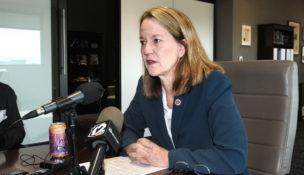Melvin, Cage knocking on independents
Arizona Capitol Reports Staff//October 3, 2008//[read_meter]
For Democrats, any hope of getting the majority of Senate seats — or even just tying the Republicans — next year hinges on winning District 26 this November.Yet the race...
No tags for this post.

















